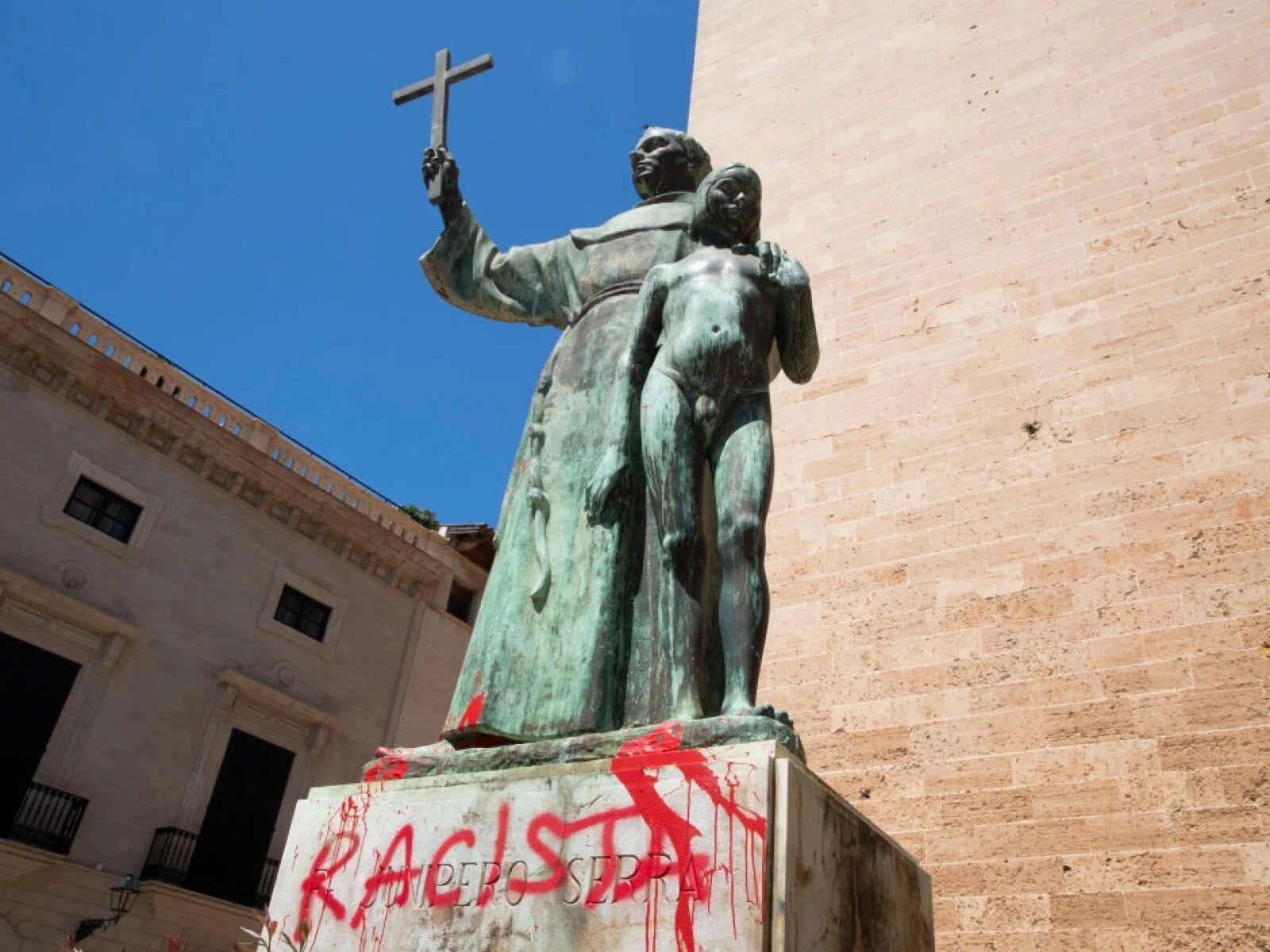TEENAGE DIARIES: Pseudohistory
By Sunny KellerCirca 2013. The curtains open. I look at myself in the backstage mirror of my elementary school auditorium and take a deep breath.
“Sunny, you got this. This is your last year before you become a fifth grader and you have to show them what you got.” I adjusted the rope around my potato sack for a costume and made sure my bald cap was snug. I stepped into the spotlight, in front of all the eager, camcorder clutching parents, as Junipero Serra, an 18th-century Franciscan priest. I took out my ukulele (a personal touch) and began singing the theme to the 4th grade California Missions and More play.
“Hear the bells, cheer the bells, these lovely bells gonna ring away. Hear the bells. San Diego to Monterey.” All of fourth grade was structured around the glorious history of California, from the hero missionaries to the white man’s Gold Rush. Nothing could have been more “LA” than this school play. The concept was a Hollywood director named JB making a film about California's rise to statehood because history isn’t valid unless it’s represented in a big budget box office success. Yes, I was devastated when I was cast to play the bald dude in a sack, rather than the sexy female director who wore a cool vest, but that’s just what you have to settle for in the industry nowadays. So, I took on the role of St. Junipero Serra with brio!
We were taught that Serra was a founding father of California who pioneered the missions movement. He educated Native Californians to be one with modern civilization and was all around a pretty great guy. All he wanted to do was “sa-ve” these people with Christianity. This salvation was expressed through popsicle stick models of missions and coloring in the worksheets of laborious ‘Indians’ smiling. Raised as a steadfast atheist, I took pride in closing my mouth for the “under God” in the pledge of allegiance every morning. So when I had to sing,
“The walls are rising, let's start baptizing”, it was my first experience of sacrificing my inherent beliefs for the stage. The second time was in the fifth grade play, America Sings, when I was the damsel in distress praying for my husband to come home from the Civil War. The fitted poofy dress was a major upgrade from the previous year’s sack, but my character’s morals hardly improved. I was Mary Ann Custus Lee, wife to the Confederate army’s general, Robert E. Lee. Los Angeles Unified School District deemed age 11 a bit too young to learn about the reality of the Civil War, so my classmates and I determined our sides by choosing if we liked the navy blue or grey hat better. I even got to sing a solo part in this cool song called “Dixie”!
As I matriculated through the grades, there were no more school plays or arts and crafts to mask the truth of what American history really was. I was never convinced by the Thanksgiving narrative and felt a kinship to Wednesday Addams in that one scene where she burns down the pilgrim’s village in her summer camp production.
Why have I never felt I had the power to question authority? Was it that I was brainwashed at 11? Was it because my grade was at stake if I spoke up? Or did I really just like crafts? Education can be frustrating when the more I learn, the less I know. The history being written as we speak is unprecedented, but with that comes new priorities and perspectives. We have to navigate through these times with knowledge because truth is power. The truths that I have heard in these past few months have given me the confidence to question the American curriculum, to take a deeper look into what I’ve been taught and who’s been teaching me, and respond with my independent consciousness. When Father Junipero Serra’s statue was torn down by protesters in Los Angeles, Sacramento, and San Francisco, I lost trust in everything I’d ever been lectured or quizzed on. If I had so innocently played my ukulele on that fourth grade stage dressed as a figure who forcefully eradicated Indigenous culture, what else was I completely oblivious to?
I won’t accept being oblivious anymore, and I’m not the only one. I posed a question on Instagram for my friends all around the world to answer and received an overwhelming amount of responses; what was something they learned in history class that they later found out was inaccurate or false? Some recurring answers featured Christopher Columbus' undeserved praise, historical LGBTQ members depicted as “just roommates”, and how MLK didn’t actually end all racism with “I Have A Dream”. But it didn’t just stop at American history. Issues from Mexico to France to India to Canada surfaced and I realized that we’re not alone. I’m grateful to experience this seismic change in understanding so early in my lifetime. My job as a student isn’t to just accept what I’m told or stay within the lines. It’s time to question all sides of every story and speak up for those who my history textbooks have not heard from.
More on Sunny Keller:
INSTA: @sunnyraekeller || Youtube: Sunny Keller






